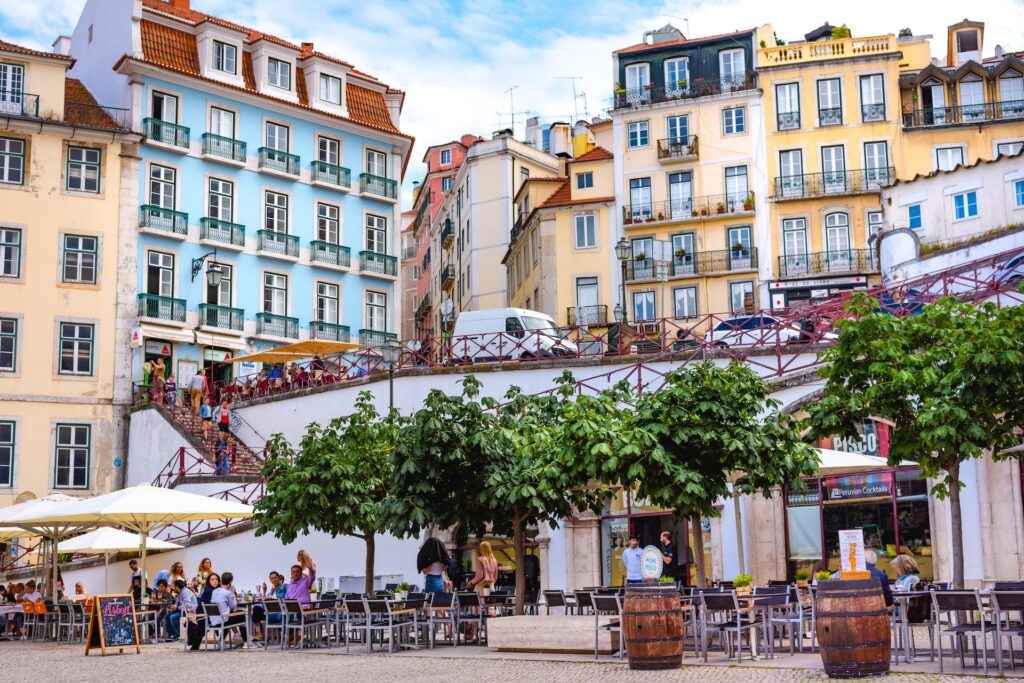Are you thinking about starting a life, in Portugal as your home home dreamland kicks in your mind recently?Remember to consider that all types of residency visas like the D7 Visa would need you to show proof of accommodation beforehand,although it may feel a bit strange to rent a place before fully settling down, this step is crucial to follow through with all the paperwork, in place smoothly. In this article,we’ll share some valuable advice to help you navigate through this process with ease.
D7 Visa Proof of Accommodation: Options
Renting a Property
For most individuals, renting is the preferred option. Typically, you’ll need to sign a lease for at least 12 months. While some embassies may accept a six-month lease, finding a landlord willing to agree to such a short period can be challenging.
Purchased Property
If you’ve already purchased a home in Portugal, you’re in luck! Simply present the property deeds when applying for your visa.
Invitation from a Portuguese Resident
Do you know someone residing in Portugal? They can provide you with a notarized letter of invitation or complete a “term of responsibility” form on your behalf. You may be asked to provide copies of their ID and the property deed.
Renting in Portugal
Rentals, in Portugal pose a challenge, for individuals who’re not residents of the country. Here are some key points to keep in mind;
The rental market, in Portugal is highly sought after and competitive as there is a surplus of demand for properties for rent in the country. This results in properties being quickly taken by tenants who are looking for suitable accommodations, at the right price point. Therefore it is important to act once you have found a property that meets your preferences to ensure that you secure it for yourself.
Landlords, in Portugal frequently ask for evidence of income before signing an agreement typically requesting salary slips or the recent income tax return, as standard documents.
When leasing a property, in Portugal landlords usually ask for two payments. May also request two deposits. If you’re not a resident they might require a guarantor. Ask for extra rent payments instead.
Landlords, in Portugal typically ask for a minimum contract duration of 12 months. They usually prefer agreements if possible to put you in a stronger position when considering different proposals, from the owner.

D7 Visa Proof of Accommodation: Tips
Registration of Lease Agreement: Ensure that your lease agreement is registered with Finanças, the Portuguese tax authority. While this responsibility typically falls on the landlord, it’s wise to verify.
Bilingual Contract: Opt for a bilingual rental agreement to guarantee full comprehension of all terms and conditions.
Termination Notice Period: Understand the terms of your 12-month lease agreement: You have the option to terminate after completing one-third of the period, with a 90-day notice period. Thus, if you’re dissatisfied, the minimum stay required is seven months.
Inventory: Request a comprehensive inventory of the property’s furnishings and amenities from the landlord to prevent any disputes upon vacating the premises.
Utilities: Check if utilities are already connected to the property. Request the latest utility invoice to facilitate the transfer of ownership into your name.
Seek the assistance: of a real estate lawyer to review the lease agreement before finalizing the deal. Landlords may sometimes attempt to include clauses that exceed legal boundaries, so legal counsel can help ensure your rights are protected.
D7 Visa Accommodation: Airbnb And Hotels
In the pasts using Airbnb bookings and hotel reservations was often considered evidence of lodging for visa applications. Nonetheless recent revisions, in rules have prompted a change, in this trend as several consulates now demand paperwork.
It’s usually an idea to go with a method, like getting a long term rental or owning a property outright to meet the housing requirement, for your visa application. Though there might be some consulate specific exceptions to consider.

How to find apartment for renting in Portugal?
Online property portals
Websites like Idealista, Century 21, and Remax are popular in Portugal for property listings. These portals allow you to search for properties based on your desired location, budget, and other preferences. You can also contact the property owner or real estate agent directly through the portal.
Real estate agents
If you prefer to work with a professional, you can contact a real estate agent in Portugal. Look for agents who are members of the Portuguese Association of Real Estate Professionals (APEMIP) other recognized industry organizations. They can help you find properties that match your criteria and assist you with the rental process.
Social media forums
Some Facebook groups and other online forums can be a good source of information about rental properties in Portugal. Look for groups that are specific to the area you’re interest in and join the conversation. You may be able to connect with property owners or real estate agents who can help you find a rental property.
Still have questions? Check out our video!
How can we assist you?
Collaborating with a buyers agent to obtain proof of accommodation might just turn out to be the choice you’ll make. We possess an understanding of the real estate scene and can offer valuable perspectives on neighborhoods characteristics and trends, in property values.We can assist you in discovering properties that align with your preferences, assign showings. Manage negotiations, on your behalf.
Furthermore we can offer advice. Assist you in assessing the advantages and disadvantages of various features.. We will guide you through financial matters, like agreements and inspections while making sure all required documentation is managed correctly.
Collaborating with our team can not save you time and effort but also play a crucial role, in fulfilling a key prerequisite for obtaining approval for your visa, to Portugal.
Frequently Asked Questions About D7 Visa Proof of Accommodation
What documents are accepted as proof of accommodation for the D7 Visa?
Accepted documents for proof of accommodation for the D7 Visa typically include a lease agreement, property deed, or letter of invitation from a Portuguese resident.
Can I use Airbnb or hotel bookings as proof of accommodation for the D7 Visa?
Airbnb or hotel bookings are generally not accepted as proof of accommodation for the D7 Visa. It’s recommended to secure a traditional rental or purchased property.
Is a lease agreement required for the D7 Visa application?
Yes, a lease agreement is usually required for the D7 Visa application.
What are the specific requirements for the lease agreement?
The lease agreement should detail the terms of the rental, including the duration, rental amount, and both landlord and tenant information. Should also be registered at the tax authorities by the landlord.
How long does the lease agreement need to be for the D7 Visa?
The lease agreement typically needs to be for at least 12 months for the D7 Visa application
Do I need to register my lease agreement with any Portuguese authorities?
It’s advisable to register the lease agreement with Portuguese authorities, although this responsibility often falls on the landlord.
Can I provide a letter of invitation from a Portuguese resident as proof of accommodation?
A letter of invitation from a Portuguese resident can sometimes serve as proof of accommodation, but it’s essential to confirm with the consulate or embassy.
What happens if I cannot secure accommodation before applying for the D7 Visa?
If you cannot secure accommodation before applying for the D7 Visa, you may need to explore temporary housing options or writing a letter that explains your situation.
Are there any restrictions on the type of accommodation accepted for the D7 Visa?
There may be restrictions on the type of accommodation accepted for the D7 Visa, such as requiring a traditional long-term rental rather than short-term stays like Airbnb.




